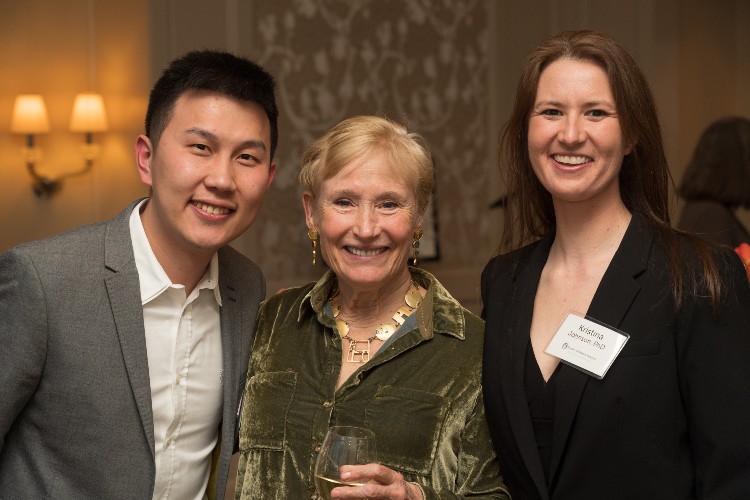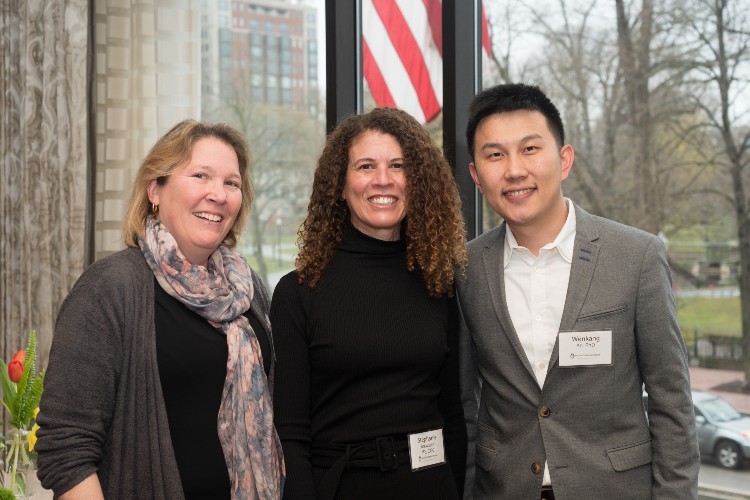For Scientists
Translational Neuroscience Fellowships
The Rosamund Stone Zander Translational Neuroscience Center aims to help cultivate the next generation of translational scientists focused on childhood brain disorders by sponsoring fellowships for postdoctoral training.
Rosamund Stone Zander Fellows
This multidisciplinary post-doctoral training program in translational research for neurodevelopmental disorders provides access to mentorship and resources across the Boston Children’s Hospital from clinicians and basic scientists, as well as collaborators from private industry and public not-for profit organizations. Fellows have opportunities for both preclinical and clinical research, and training in a broad set of skills to pursue independent translational research. Awardees pursue projects designed to facilitate the development of novel therapeutics. Please see our application guidelines here >.
Neurodevelopmental T32 Fellows
The RSZ TNC coordinates the T32 Translational Postdoctoral Training in Neurodevelopment Fellowship Program at Boston Children’s Hospital. Funded by the National Institute of Mental Health (NIMH), this fellowship supports researchers who aim to improve or expand their ability to conduct interdisciplinary investigation in translational neuroscience research in neurodevelopment and neurodevelopmental disorders. The T32 program is led by three co-directors (David Glahn, PhD, Psychiatry; Charles Nelson, PhD, Developmental Medicine Center; Mustafa Sahin, MD, PhD Neurology) with a group of 17 highly skilled and successful training faculty from a diverse array of disciplines. The T32 Fellows will form a cohort with the RDCRN Fellowship Program and the NeuroNEXT Fellowship Program. New RSZ TNC and T32 Fellows will be recruited biannually and will be mentored through their fellowship training into positions within academia, clinical care and industry at the intersection of translational research for neurodevelopmental disorders.
Fellows hold a two-year joint appointment at Boston Children’s Hospital and Harvard Medical School and enjoy access to the resources of both institutions. Please see our application guidelines here >.
2023 Neurodevelopmental T32 Fellows
Two exceptional candidates have been awarded the Neurodevelopmental T32 post-doctoral fellowships from the Rosamund Stone Zander Translational Neuroscience Center.
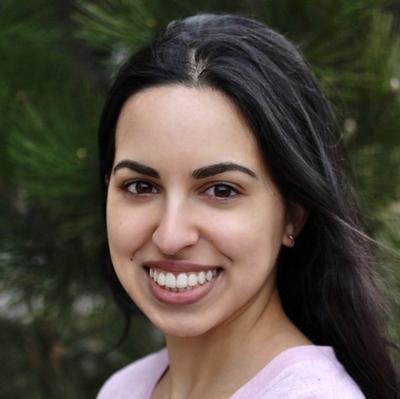
Sanna Lokhandwala, PhD
Dr. Lokhandwala recently completed her PhD in Psychological & Brain Sciences at the University of Massachusetts, Amherst. Her work focuses on understanding the mechanistic role of sleep in brain development and cognitive function during early childhood. Sanna’s T32 fellowship project aims to track the direction of and examine the relationship between the brain and sleep in adolescents. Furthermore, Dr. Lokhandwala is interested in examining how these trajectories may relate to psychopathology during this period in development. She is mentored by Drs. Maria Jalbrzikowski and Takao Hensch.
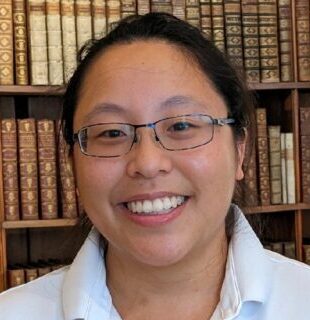
Ruby Lam, PhD
Dr. Lam earned her PhD in neuroscience from Brown University as part of the graduate partnership program with the National Institute of Health. Throughout her doctoral studies, she conducted research on the cells and molecules involved in somatosensation under the guidance of Dr. Alexander Chesler. Her T32 fellowship is dedicated to understanding the neuromodulatory influences of Norepinephrine on sensory-motor phenotypes in rodent models of the neurodevelopmental disorder Rett syndrome. Dr. Lam is mentored by Dr. Mriganka Sur in the Department of Brain and Cognitive Sciences at the Massachusetts Institute of Technology.
2023 Rosamund Stone Zander Fellows
These two outstanding candidates were chosen for their qualifications and ambitious research proposals. Each will have the opportunity to build translational research projects with the mentorship of leaders in their fields, and will leverage the full depth and breadth of resources at the RSZ TNC and BCH throughout their two-year fellowship program.
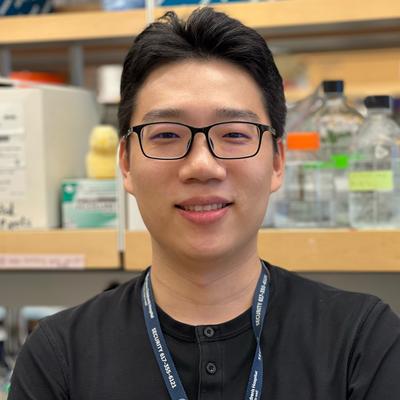
Chen Ding, PhD
Dr. Ding recently completed his PhD in Neuroscience at Yale University, where he studied axon regeneration and axon degeneration in the model organism C. elegans in the lab of Dr. Marc Hammarlund. During his PhD research, he became fascinated by the role of mitochondria in neurodegeneration. His fellowship project will focus on developing gene therapy approaches for autosomal dominant optic atrophy, a childhood disease caused by the important mitochondrial protein OPA1. His long-term career goal is to become an independent neuroscientist who accelerates the translation of basic research on neurodegenerative diseases to therapeutics. Dr. Ding is mentored by Dr. Thomas Schwarz in the Department of Neurobiology and the F.M. Kirby Neurobiology Center.
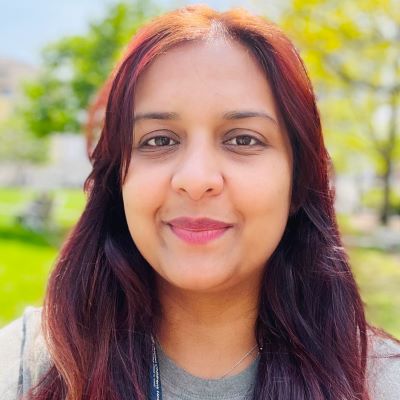
Sneham Tiwari, PhD
Dr. Tiwari recently completed her PhD in Biomedical sciences at Herbert Wertheim College of Medicine at Florida International University. Her PhD focused on understanding aging-related neuropathologies and targeting them with efficient and bioavailable drug delivery systems. She is fascinated by understanding the neurological disorders and factors involved in the abnormal functioning of the brain and translation in patients’ symptoms. Currently, she is a post-doctoral research fellow in the Department of Neurology at Boston Children’s Hospital and Harvard Medical School, where she is pursuing her passion, studying epilepsy genetics with an emphasis on cellular mosaicism. Her fellowship project will be focused on studying somatic mutations occurring in genes of the mTOR pathway, targeting important genes that affect brain development. Her long-term career goal is to become an independent neuroscientist and focus on deciphering mechanisms underlying neurological disorders and translating towards high throughput drug screening and targeted efficient bioavailable therapeutics development to enhance patients’ quality of life. Dr. Tiwari is mentored by Dr. Annapurna Poduri in the F.M. Kirby Neurobiology Center and Department of Neurology.
2022 Neurodevelopmental T32 Fellows
Three outstanding candidates have been awarded the inaugural Neurodevelopmental T32 post-doctoral fellowships from the Rosamund Stone Zander Translational Neuroscience Center.
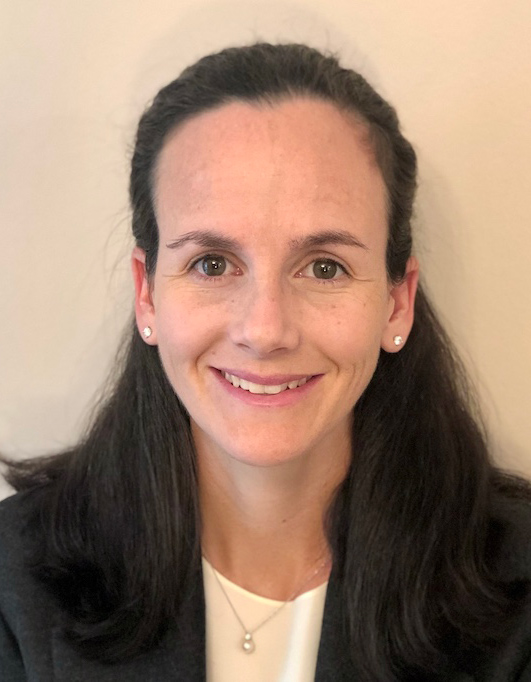
Anna Duncan, MD
Dr. Duncan is a neonatologist at Massachusetts General for Children and an Instructor in Pediatrics at Harvard Medical School. She is an expert in neurodevelopmental disorders, with extensive previous work in developmental neurobiology, molecular genetics, embryology, and genetics. Her fellowship project aims to use zebrafish to examine how loss of KDM4B function alters neurodevelopment and behavior. Dr. Duncan is mentored by Dr. Annapurna Poduri of Boston Children’s Hospital’s Neurology department.
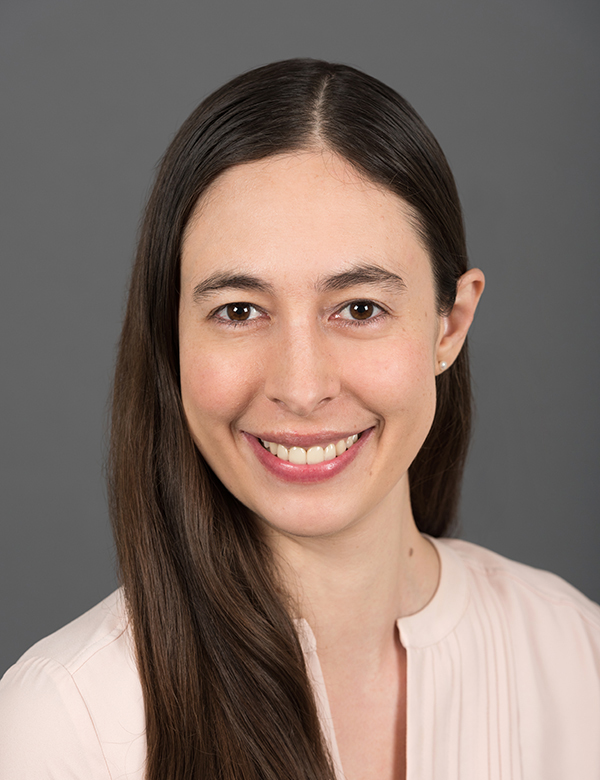
Isabel Haviland, MD
Dr. Haviland is a research fellow in the department of neurobiology of Boston Children’s Hospital and Harvard Medical School, where she is focused on clinical research in CDKL5 deficiency disorder (CDD) and pediatric epilepsy genetics. She has participated in collaborations exploring treatment approaches to CDD and methods of precision diagnosis in neurodevelopmental disease and the high impact of genetic testing in this population.
Her T32 fellowship is focused on expanding genotype-phenotype correlations in CDD and SCN2A-related disorders, two early-life developmental and epileptic encephalopathies with a wide spectrum of presentation. She is mentored by Dr. Heather Olson of Boston Children Hospital’s Neurology department.
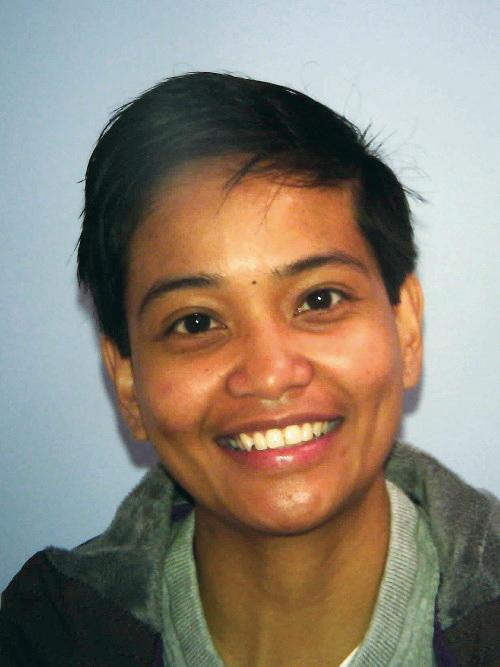
Sheryl-Anne Vermudez, PhD
Dr. Vermudez recently completed her PhD in pharmacology at Vanderbilt University and is currently a research fellow in the F.M. Kirby Neurobiology Center at Boston Children’s Hospital investigating the role of Kv3.1 potassium channels in parvalbumin (PV) interneuron dysfunction and acquired epilepsy using an epileptogenic mouse fluid percussion model.
Her T32 fellowship project aims to provide insights into the outstanding questions regarding mechanisms of and effective treatments for acquired epilepsy by understanding the role of Kv3.1 potassium channels and PV interneuron dysfunction, in turn elucidating KCNC1-mediated epilepsy and potential treatment strategies. Dr. Vermudez is co-mentored by Drs. Mustafa Sahin and Alexander Rotenberg of Boston Children’s Hospital’s Neurology department.
2021 Rosamund Stone Zander Fellows
Two extraordinary candidates have been awarded the first-ever post-doctoral fellowships from the Rosamund Stone Zander Translational Neuroscience Center.
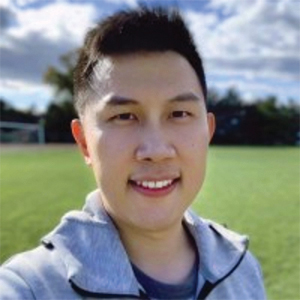
Wenkang “Winko” An, PhD
Dr. An recently completed his PhD in Electrical and Computer Engineering at Carnegie Mellon University. He trained as an electrical and biomedical engineer with specializations in signal processing, machine learning and non-invasive neuroimaging methods. His long-term career goal is to become an independent developmental neuroscientist/neuroengineer, studying the neural mechanisms underlying neurodevelopmental disorders. He hopes to develop diagnostic and treatment solutions using engineering concepts.
His fellowship project applies advanced EEG signal processing in children with ASD related disorders. Dr. An is mentored by Drs. Charles Nelson and Carol Wilkinson from the Laboratories for Cognitive Neuroscience in the Department of Developmental Medicine.
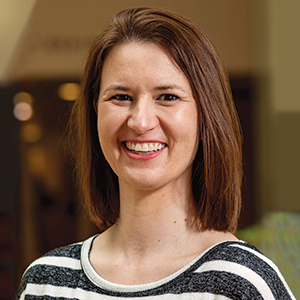
Kristina “Kristy” Teresa Johnson, PhD
Dr. Johnson completed her PhD in the MIT Media Lab during the summer of 2021. She worked at the intersection of neuroscience, engineering, and autism in the laboratory of Dr. Rosalind Picard. Her research experience includes multi-disciplinary techniques ranging from deep brain stimulation and fMRI neuroimaging to wearable biosensors and human-centered AI systems.
Her fellowship project is focused on the integrated analysis of multi-modal data stemming from the Rare Disease Clinical Research Network Developmental Synaptopathies Consortium. Her long-term career goal is to accelerate research focused on improving the lives of individuals with complex neurodevelopmental differences, especially those who have few spoken words, genetic disorders, or intellectual disabilities. She is mentored by Dr. Mustafa Sahin in the Department of Neurology and Kirby Neurobiology Center.
Fellowship Application Guidelines
RSZ TNC Fellowship
2025 Application Cycle
Our 2025 timeline and application guidelines are pending. Please check back later for more details as they become available.
Applications should consist of one pdf, with the following documents listed below, submitted via email to tnc@childrens.harvard.edu with the subject “RSZ TNC Fellowship Application”:
- Applicant’s CV
- Applicant’s statement (maximum total of 4 pages) about research interest and/or proposed project plan. The statement should also include:
- An explanation of why the applicant has chosen this particular training program
- A Career Plan, such as the new or enhanced skills and knowledge to be acquired as a result of the proposed award as well as short-term and long-term career development goals
- A Diversity Statement that is a depiction of the applicant’s past experiences and explains how these experiences have contributed to personal and professional growth
- Names of 2 potential reference letter writers
- List of trainee’s other support (needs at least 50% availability)
After an initial screening, we will select a group of Finalists who will:
- Appear for a personal interview
- Provide two letters of support
For more information about this unique 2-year fellowship, please click here to read our RSZ TNC Fellowship Infosheet >. For a full list of faculty mentors, see our RSZ TNC Affiliate Faculty page >. Further inquiries can also be made by reaching out to us directly at tnc@childrens.harvard.edu.
Neurodevelopmental T32 Fellowship
2024 Application Cycle
Applications should be submitted by March 15, 2024, with the expectation that trainees will be selected by April 30 and will start in July 2024.
To apply for the T32 Fellowship, applicants should be nominated by their post-doctoral research mentor or current training program director. Applicants must be U.S. citizens or permanent residents with an MD and/or PhD (must be completed at the time training begins). Commitment to the goals of the program and strong academic and research credentials are important criteria used in the selection process.
Applicants should submit one PDF to T32translationaldevelopment@childrens.harvard.edu and include the following:
- Applicant’s CV
- Two-Page Statement of Research Interest, specifying the interdisciplinary nature of the work, and purpose in selecting the T32 training program.
- Names and contact information of two potential Reference Letter Writers
- List of Other Research Support (if applicable)
After an initial screening, we will select a group of Finalists who will:
- Appear for a personal interview
- Provide two letters of support (one from trainee’s mentor), and
- Mentor’s other support document
For more information about this NIH-funded 2-year fellowship and a full list of faculty mentors, please click here to read our T32 Fellowship Infosheet >. Further inquiries can be made by reaching out to T32Translationaldevelopment@childrens.harvard.edu.



